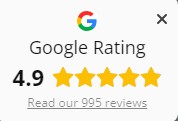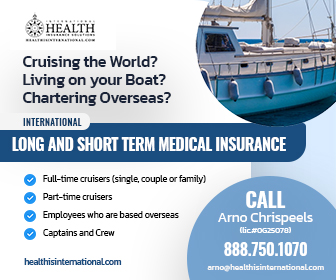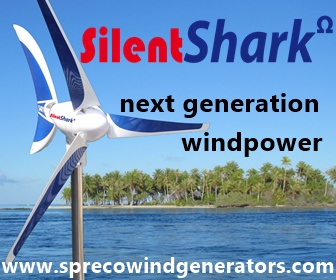Yacht Insurance – Price Determinant Factors
Published 14 years ago, updated 5 years ago
This boat insurance article looks at the key price calculation factors that ultimately determine your boat insurance quote for ocean-bound yachts and similar vessels. Whatever the type of yacht you own (be it small or large) the vast majority of boat insurance companies will categorize them in the same grouping. The reason for this is perhaps partly due to simplicity (there are already too many boat types the boat insurance companies have to create and maintain premium calculation rules for!), but actually, the key reason is that the inherent risk of a claim between yacht of differing sizes is largely similar.
Owning a yacht does not immediately attract the lowest rates of insurance levy (this is reserved for slow-moving inland waterway vessels), but nor does it attract the highest (these are reserved for powerful sports boats and alike (for the obvious reason that speeds attract greater potential for the accident). Regardless of boat insurance category however all good boat insurance companies will firstly offer you the option of either comprehensive or third party only insurance. As you might guess this option is the single biggest insurance quote criteria that determine your insurance cost as you are effectively stating whether the insurer must pay a claim on one or two vessels in the event of an incident and you are found at fault.
Third party insurances are usually calculated as a fixed price, but assuming you select comprehensive insurance, the second key factor determining the price of any boat insurance quote is the value of your vessel. Insurance companies literally take the hull value of the vessel (and add to this any additional quoted items e.g. trailer, masts, spars, rigging) and multiply it by a specific percentage rate (i.e. vessel value x 0.#%).
When it comes to yacht insurance the rate applied is normally fairly static regardless of vessel value, however, a further sliding rate will be applied depending on your cruising range. Obviously, the further the range you wish to be insured for, the greater amount of time you are likely to spend aboard and the more risky the regions you could potentially travel into. Both of these increase risk to the insurer, for which inevitably quoted costs will increase.
The third key factor that will affect your quote will be (similar to most insurance types), years no claims bonus. Most insurers provide 5 years but some do provide 6 years. For each and every year without a claim a percentage will be knocked off your final insurance cost up to the maximum number of years.
The main remaining factors determining your insurance cost are often then optional (or in the case of a tax, likely not under your control!). Clearly taking up additional optional items incurs a cost (or risk) for the insurer and as a result inevitably affects the price;
- Insurance Premium Tax (this is charged at 6% in the UK, this varies all over e.g. in the channels islands this is 0%)!
- Breakdown cover (usually a fixed price)
- Contents cover (depends on the type and value of contents being covered and normally requires direct contact with insurance staff)
- No claims bonus protection (when available at a small percentage rate levy)
- Racing cover (usually an additional rate added to your stated mast, spars, sails etc value)
There are also a small number of other factors which may be taken into consideration (this all depends on individual insurers) which perhaps does not affect a majority but inevitably will affect some. These are;
- Not having a permanent or ‘safer’ type of mooring, will often incur additional levy. Marinas or out of water trailer storage (with assurances of suitable locking) are considered safest here. Also, mooring types may be considered
- Swing moorings are often considered a slightly riskier mooring type and so may incur a small additional levy.
- Having an auto-bilge to protect against leakage may well also produce slightly lower premiums.
Finally, somewhat surprisingly whilst most insurers will stipulate an age of 18 or over, thereafter age is not usually a factor determining boat insurance cost (unlike motor insurance!). Those over a certain age e.g. 65-70, however, may find exemptions from personal injury claims.
This article was provided by www.merciamarine.co.uk, providers of yacht insurance. Mercia Marine cannot be held accountable or indeed liable to any party for any direct, indirect, punitive, incidental or other consequential damages arising through any use of its information, without any warranty it is provided as is with best intentions only.
Related to following destinations: United Kingdom
Related to the following Cruising Resources: Global Yachting Services, Insurance, Insurance, Yacht Insurance








